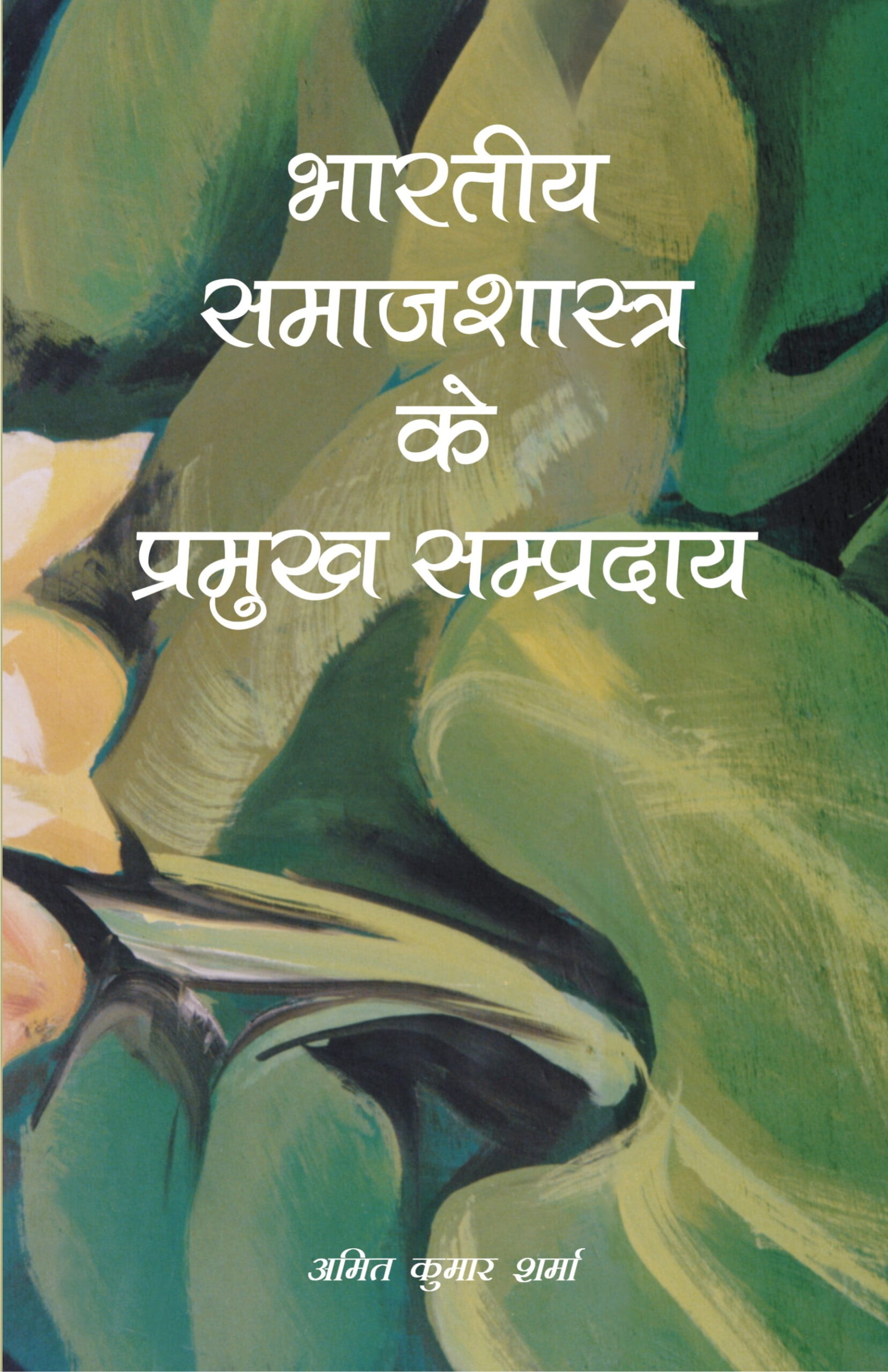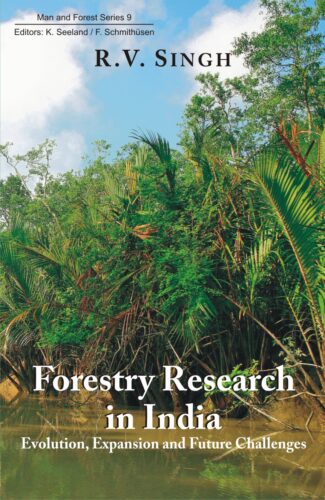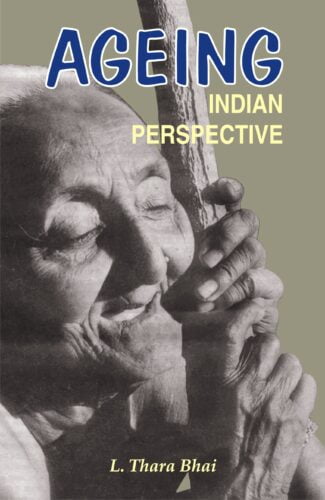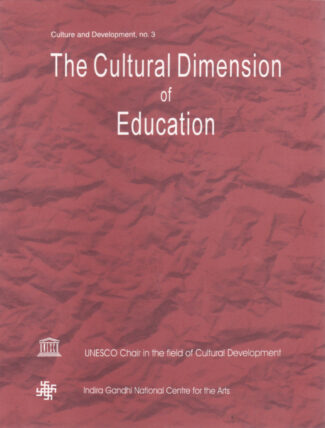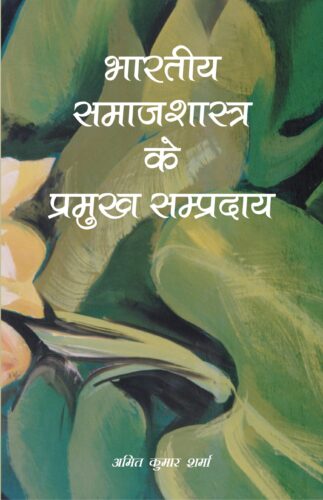

Bharatiya Samajshast...
Bharatiya Samajshastra ke Parmukh Sampardaya (PB)
by: Amit Kumar SharmaSociology, as a social science, is new to India. This volume in Hindi thus discusses the advent, teaching and development of sociology in India. It is an outstanding narration of advent and evolution of sociology in India and the major sociologists.
₹380.00 Original price was: ₹380.00.₹342.00Current price is: ₹342.00.
ISBN: 9788124606025
Year Of Publication: 2011
Edition: 1st
Pages : xix, 284 p.
Bibliographic Details : Bibliography; Index
Language : Hindi
Binding : Paperback
Publisher: D.K. Printworld Pvt. Ltd.
Size: 23
Weight: 550
Bharatiya Samaj Shastra ke Pramukh Sampradaya is a book in Hindi language that deals with the advent, teaching and development of Sociology in India.It is an original book that deals with the major Sociologists in India. This book divides the whole history of sociology in India into nine interesting chapters. This book is an outstanding narration of the advent and evolution of Sociology in India. For a long time there was a need of such a book in Hindi .This is a helpful book for the teachers, students and researchers in various colleges, Universities and research institutions. For the researchers in Hindi literature, Cinema and Culture this can be used as a reference book. This book is also helpful for the UGC. / NET aspirants in Sociology.

- Sale!Forestry Research in India by: R.V. Singh
₹1,250.00Original price was: ₹1,250.00.₹1,125.00Current price is: ₹1,125.00.Forestry research is a niche segment in India and has yet to find a deserving place as a science. Many universities/premier institutes haven’t realized its potential and, therefore, are not keen to offer courses on it. This book is an effort to highlight the importance of the topic and thus presents a detailed study, critical analyses, strengths and weaknesses of forestry research in India since its inception towards the end of the nineteenth century.
It very clearly analyses and summarizes relevant issues enabling readers understand approaches adopted, their failures and successes, and provides main conclusions. Based on such detailed critical analyses, it identifies major issues and gives suggestions for improvement and future direction. Strong and appropriate forestry research support is critical to realize the potential of forests of our country to mitigate climate-change effects, conservation of biodiversity, support sustainable agriculture through climate amelioration and perpetual supply of water for irrigation to ensure food security for the country, alleviation of poverty of tribals and other forest-dependent communities and to provide a number of goods and services needed for economic development of the country.
The book provides suggestions for strengthening and reorientation of forestry research in the country. First of its kind on the subject, this book should generate keen interest on forestry research among the policy-makers, educators and even to the intellectuals and students involved in forestry studies and services. - Sale!Ageing, Indian Perspective by: L. Thara Bhai
₹550.00Original price was: ₹550.00.₹495.00Current price is: ₹495.00.The old and aged in a society represent the bedrock of its existence: symbolising the past. They are the carriers of tradition, values and experience, the guiding light for the young without whom society is not total and lose its stability. And progress that a society makes, culturally and morally, is reflected in the way it treats its aged. This volume, comprising presentations at a national seminar on issues of ageing of current importance, takes up crucial problems faced by the old, suggests ways to address them and discusses the future scenario viewing ageing and the aged in the context of increasing modernisation. The well-researched papers, reflecting clarity in thought and language, deal with aspects like inter-generational problems of the old, the environments effect on them and their nutritional status and health problems. They examine how the age-old institution of the family and the newly-evolved concept of the old-age home cater to the needs and comforts of the elderly persons, with investigations into care of the aged in specific homes and institutions. They also focus specially on the plight of the poor aged and old women who are debilitated by the social environment and conditions as well. They study the priorities of action where the welfare of the aged is concerned, reviewing policies and programmes in operation including the National Policy for Welfare of the aged. The book would prove invaluable to scholars of gerontology and sociologists and be of interest to general readers as well.
- Sale!Forest Tribes of Orissa Vol. 3: The Juang by: Nityananda Patnaik, B.P. Choudhury, Klaus Seeland, A. Rath, A.K. Biswal, D.B. Giri,
₹900.00Original price was: ₹900.00.₹810.00Current price is: ₹810.00.In the management of renewable resources, forests have undeniably a vital role, and today, as never before, their conservation is an urgency. In view of this dire necessity the series Man and Forest tries to highlight the relevance of indigenous knowledge of various South Asian tribal communities in the sustainable management of forests/local resources more specially against the growing challenges of economic development vis-à-vis environmental hazards and a rapidly declining resource base. A scientific inquiry into indigenous knowledge is an effort to discover/rediscover the tribals’ traditional modes of production and conservation. For them it is the only source to cope with the problems of modernity affecting their lives and precarious environments. Forest Tribes of Orissa: The Juang is the seventh monograph in the series Man and Forest and, after the publication of an account of the forest world of the Dongaria Kondh in 2002, and the Kuttia Kondh in 2006. Being a tribal community in transition, the authors have tried to document and thus safeguard its local traditional knowledge of conservation, use and management of forests and natural resources. They give an account of how the Juang classify trees and other plants, hills, forests, crops and animals. Their subsistence economy, agricultural system, social organization, religious beliefs and other important socio-cultural aspects of forest life have been extensively treated. The lifestyle of this tribal community is finally reflected on the background of forest policy and the impact it has on their livelihood. The present book is, as most of the volumes in the series, the outcome of nearly ten years’ research venture involving an interdisciplinary, intercultural team of sociologists, ethnobotanists, and social anthropologists
- Sale!Cultural Dimension of Ecology by: Baidyanath Saraswati
₹600.00Original price was: ₹600.00.₹540.00Current price is: ₹540.00.Urbanization. Industrialization. Market Economy. Technocentric Lifestyles. Degenerated Consumerism. Air, Water and Land Pollutions. These are some of the tell-tale expressions, recurringly surfacing in the concerns about ecological disturbances across the continents. Today, however, as we are headed for an ecological disaster, there is not only a growing awareness against the cornucopian technocentrism, but also a far-stretched disillusionment with the one-way exploitative, economic development. And even the national planners are being questioned: Can the law of a nation supersede the Law of Nature? Should the rights of the people be allowed to be destructively manipulated by the rules of power? Must the wisdom-tradition of our ancestors be shelved to accomodate the flagrant hypocrisies of the Planning tradition? As a part of the Unesco Chair activities at the Indira Gandhi National Centre for the Arts, a Conference: 13-16 October 1995, New Delhi, involved some of the highly reputed scholars in a stimulating dialogue on the Cultural Dimension of Education and Ecology. Its presentations are now offered in two volumes: setting out independently the Cultural Dimension of (1) Education, and (2) Ecology. Focussing on the ecological systems in the mountains, forests and islands vis-a-vis the hitherto-adopted modes of aggressive development, the 15 articles here underscore the urgency of changing the modern lifestyles, of befriending Nature and, above all, of returning to wisdom-tradition. Also included here are case-studies highlighting the aspects of culture that are being lived in the day-to-day lives of people even today! This collection is invaluable to environmentalists, social activists, economic planners, policy-makers, and cultural scholars working for the revival of traditional wisdom.
- Sale!Cultural Dimension of Education by: Baidyanath Saraswati
₹700.00Original price was: ₹700.00.₹630.00Current price is: ₹630.00.Traditional education strives to expand the spheres of existence through social awareness (forming kinship with the entire world), cosmological awareness (expansion of the being by self-transformation), and technological awareness (relating creativity to the ritual enforcement of life). In contrast, modern education teaches a way of life, which is limited by self-centred consumerism, which allows mans ego to establish itself as the conqueror of nature, which fragments people through competitive vocations and specialized technical professions. How do we resolve this deep dilemma between the traditional and modern systems of education? Or, alternatively, how can a sensibly worked-out system of education afford a symbiosis between modernity and wisdom-tradition? Addressing this vital question, the authors here look afresh at the relevance of art in the age of science/technocentrism, the role of education in promoting peace and concord, Gandhian system of basic education and, finally, how far Indias national concerns are reflected in its national policy on education. An assemblage of 16 education-related essays, this volume is essentially the outcome of a Conference on the Cultural Dimension of Education and Ecology, held in New Delhi on 13-16 October 1995 as a part of the Unesco Chair activities (in the field of cultural development) at the Indira Gandhi National Centre for the Arts. It presents insightful perspectives on primary education, focussing specially on its current status, trends and problems in Bangladesh, India, Indonesia and Thailand. The volume will interest all those involved with education: whether as scholars, professionals, planners, or as reformers.


